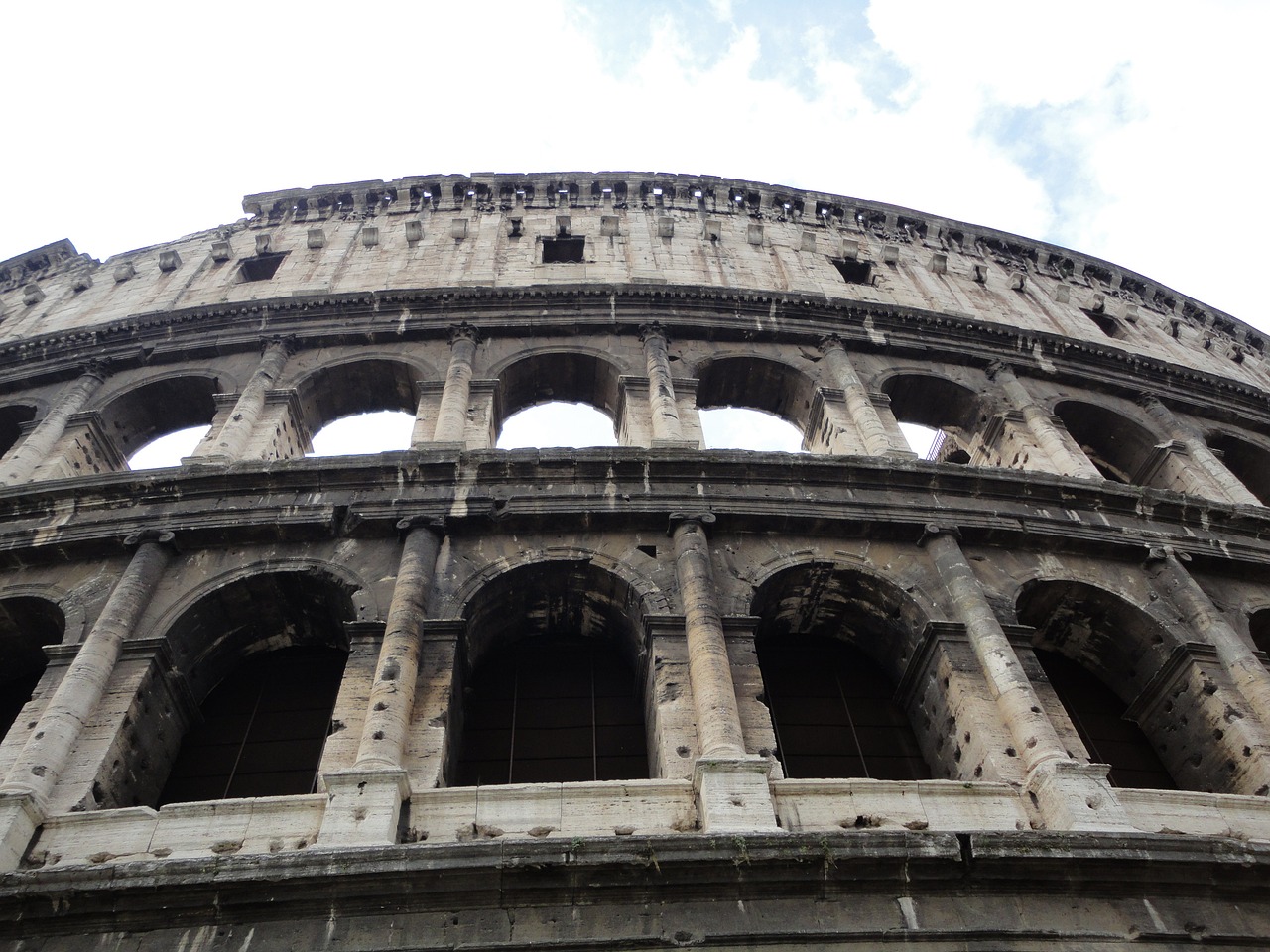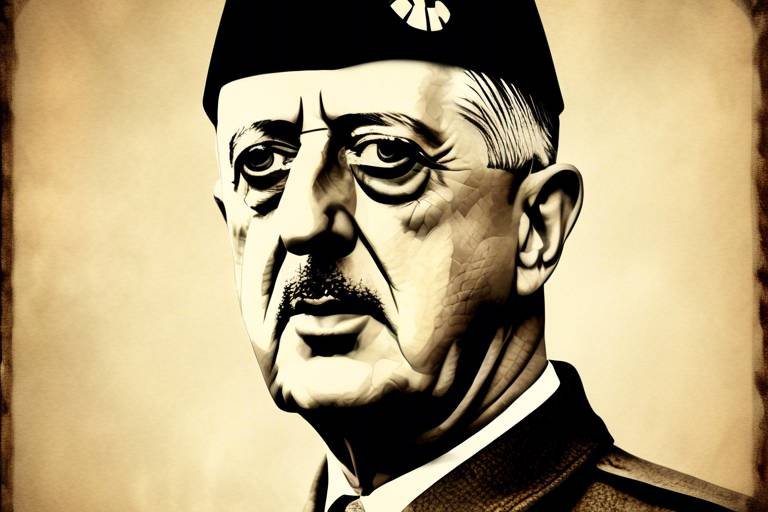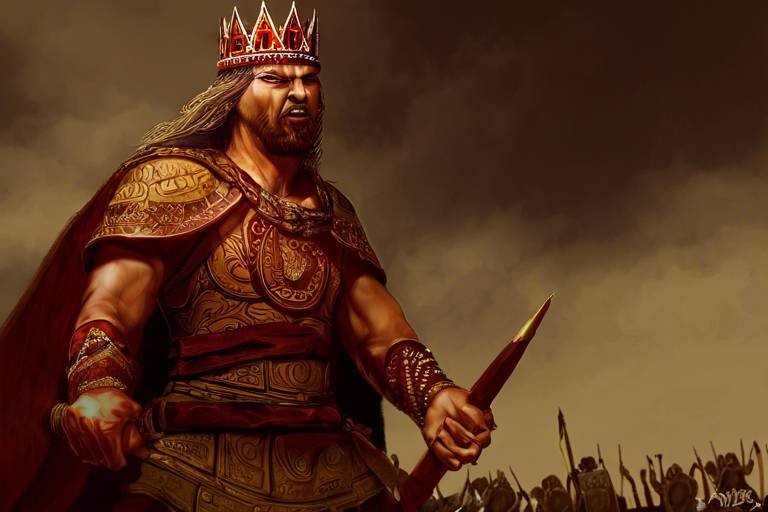Mansa Musa: The Wealthiest Man in History
Mansa Musa, the legendary ruler of the Mali Empire, holds the prestigious title of being the wealthiest man in history. His immense wealth and influence have solidified his place as one of the most powerful figures to have ever graced the annals of history.
During his reign, Mansa Musa amassed a fortune beyond comprehension, establishing himself as a symbol of opulence and prosperity. His riches were so vast that they seemed to stretch to the horizon, dazzling all who beheld them.
As a visionary leader, Mansa Musa's wealth was not merely a display of extravagance but a tool for shaping the destiny of the Mali Empire. His financial prowess enabled him to elevate his kingdom to unprecedented heights of prosperity and influence, leaving a lasting legacy that endures to this day.
Embarking on a journey of exploration into the life and riches of Mansa Musa unveils a tapestry of grandeur and magnificence unparalleled in history. His story is not merely one of wealth but of power, wisdom, and the enduring allure of his legacy.

Early Life and Rise to Power
Explore the life and riches of Mansa Musa, the legendary ruler of the Mali Empire, whose wealth and influence made him one of the most powerful figures in history.
Mansa Musa, originally named Musa Keita, was born in the year 1280 in the city of Niani, located in present-day Guinea. He belonged to the Keita dynasty, which ruled the Mali Empire. Musa Keita's early life was marked by significant challenges and struggles, but his resilience and intelligence set him apart from a young age.
As he matured, Musa Keita displayed exceptional leadership qualities and a deep understanding of the intricacies of governance. His reputation for fairness and wisdom earned him the respect of both the common people and the nobility within the empire. These qualities, coupled with his strategic vision, paved the way for his eventual rise to power.
Upon the death of his predecessor, Abu-Bakr II, Musa Keita ascended to the throne of the Mali Empire in 1312. His coronation marked the beginning of a new era of prosperity and cultural flourishing for the empire.
Musa Musa's reign was characterized by a series of military conquests and diplomatic alliances that solidified his control over the vast territories of the Mali Empire. His ability to navigate complex political landscapes and forge strategic partnerships with neighboring states further enhanced his influence and power.
One of the key events that shaped Musa Musa's reign was his successful expansion of the empire's borders, which allowed for increased trade and cultural exchange with other regions. This expansion not only bolstered the empire's economic prosperity but also enriched its cultural heritage, laying the foundation for the Mali Empire's golden age.
Through a combination of astute governance, military prowess, and diplomatic finesse, Musa Musa established himself as a formidable leader whose legacy would endure for centuries to come.
Discover how Mansa Musa transformed the Mali Empire into a thriving center of trade, culture, and Islamic scholarship during his rule.
Follow Mansa Musa's famous pilgrimage to Mecca, where he displayed his immense wealth and generosity, leaving a lasting impact on the region.
Explore the architectural marvels and cultural achievements commissioned by Mansa Musa that still stand as testaments to his grandeur.
Understand the economic influence of Mansa Musa's extravagant spending during his pilgrimage and how it affected global economies.
Examine the various historical records and myths surrounding Mansa Musa's wealth, including exaggerated tales of his riches.
Learn how Mansa Musa's legacy continues to inspire African leaders and entrepreneurs, shaping the narrative of African wealth and power.
Reflect on the leadership, philanthropy, and economic principles embodied by Mansa Musa that hold relevance in today's world.

The Mali Empire's Golden Age
During the reign of Mansa Musa, the Mali Empire experienced a period known as its Golden Age, marked by prosperity, cultural flourishing, and significant advancements in various fields. Under Mansa Musa's leadership, the empire thrived as a hub of trade, attracting merchants from far and wide to its bustling markets. The wealth accumulated through trade routes, particularly the lucrative trans-Saharan trade in gold and salt, bolstered the empire's economic power and influence.
One of the key aspects that defined the Mali Empire's Golden Age was its rich cultural landscape. Mansa Musa's patronage of the arts and scholarship led to a vibrant exchange of ideas and knowledge within the empire. This era saw the construction of magnificent mosques, libraries, and centers of learning, showcasing the empire's commitment to Islamic education and architecture.
Moreover, Mansa Musa's support for Islamic scholarship and the pilgrimage to Mecca brought scholars and intellectuals to the Mali Empire, further enriching its intellectual heritage. The empire became a beacon of learning and innovation, attracting some of the brightest minds of the time.
Furthermore, the Mali Empire's Golden Age was characterized by a spirit of inclusivity and tolerance. Mansa Musa's promotion of religious freedom and cultural diversity fostered a climate of harmony and mutual respect among the empire's inhabitants. This ethos of acceptance contributed to the empire's stability and cohesion, allowing it to flourish both culturally and economically.

The Hajj Journey
Embark on a journey with Mansa Musa as he undertakes the sacred pilgrimage to Mecca, known as the Hajj. This pivotal moment in his life not only showcased his immense wealth but also highlighted his deep devotion to Islam. As Mansa Musa traveled through various lands, his caravan dazzled onlookers with its opulence and generosity, leaving a trail of awe and admiration in its wake.
Upon reaching Mecca, Mansa Musa's presence was nothing short of extraordinary. He distributed vast amounts of gold to the poor, built mosques, and sponsored the education of scholars, solidifying his reputation as a benevolent and magnanimous ruler. His actions not only left a lasting impact on the people he encountered but also reshaped the economic landscape of the regions through which he passed.
Imagine the spectacle of Mansa Musa's entourage, with camels laden with gold and precious gifts, traversing the vast deserts and bustling cities on their way to Mecca. The journey was not just a physical one but a symbolic representation of Mansa Musa's power, faith, and commitment to his people.
As Mansa Musa returned from the Hajj, the echoes of his generosity reverberated far and wide, solidifying his legacy as one of the most influential and affluent rulers in history. The Hajj journey was not just a personal pilgrimage for Mansa Musa but a transformative experience that left an indelible mark on the world around him.

Architectural and Cultural Legacy
When delving into the Architectural and Cultural Legacy of Mansa Musa, one cannot help but marvel at the grandeur and sophistication of the structures and artistic endeavors commissioned during his reign. Mansa Musa's patronage of architecture and the arts not only showcased his wealth but also demonstrated his commitment to promoting cultural excellence.
One of the most renowned architectural projects associated with Mansa Musa is the legendary Djinguereber Mosque in Timbuktu. This magnificent mosque, constructed in the 14th century, stands as a testament to the architectural ingenuity of the Mali Empire. The mosque's intricate design, featuring intricate geometric patterns and ornate carvings, reflects the wealth and artistic sophistication of Mansa Musa's era.
In addition to mosques, Mansa Musa also sponsored the construction of universities and libraries, fostering a vibrant intellectual and scholarly community within the Mali Empire. These centers of learning attracted scholars and students from far and wide, contributing to the Empire's reputation as a hub of Islamic scholarship and cultural exchange.
Furthermore, Mansa Musa's cultural legacy extends beyond architecture to encompass the promotion of music, literature, and craftsmanship. The Mali Empire flourished under his rule, with artisans creating exquisite jewelry, textiles, and pottery that showcased the Empire's rich cultural heritage.
Overall, Mansa Musa's Architectural and Cultural Legacy is a testament to his vision of creating a prosperous and culturally vibrant society. His patronage of the arts and architecture not only left a lasting impact on the Mali Empire but also influenced the artistic traditions of subsequent generations in Africa and beyond.

Economic Impact and Legacy
When delving into the economic impact and legacy of Mansa Musa, one cannot overlook the monumental consequences of his extravagant spending during his famous pilgrimage to Mecca. As Mansa Musa embarked on this journey, he carried an immense amount of gold, distributing it generously along the way. This act of lavish generosity not only left a lasting impression on the people he encountered but also had a significant impact on the economies of the regions through which he passed.
Historical accounts suggest that Mansa Musa's excessive spending during his pilgrimage caused a temporary inflation in the price of gold in the Middle East. The sudden influx of gold into these regions disrupted the existing economic balance, leading to fluctuations in prices and trade patterns. This economic ripple effect highlighted the immense wealth and power that Mansa Musa wielded, showcasing the economic prowess of the Mali Empire on a global scale.
Furthermore, Mansa Musa's economic legacy extended beyond his pilgrimage, as his investments in infrastructure, trade routes, and cultural endeavors bolstered the economic prosperity of the Mali Empire. His patronage of the arts, architecture, and education not only enriched the cultural landscape of the empire but also attracted scholars, traders, and artisans from far and wide, contributing to the flourishing economy of the region.
In essence, Mansa Musa's economic impact and legacy serve as a testament to the interconnected nature of wealth, influence, and historical significance. His extravagant spending, while awe-inspiring, also serves as a reminder of the delicate balance of power and economics in shaping the course of history.

Historical Accounts and Myths
Historical accounts and myths surrounding Mansa Musa's wealth have been the subject of fascination and debate for centuries. While historical records provide valuable insights into his reign and the impact he had on the Mali Empire, they are often intertwined with myths and legends that have elevated his status to legendary proportions.
One of the most enduring myths surrounding Mansa Musa is the tale of his extravagant spending during his pilgrimage to Mecca. According to accounts, Mansa Musa's caravan was said to be so vast that it included thousands of soldiers, servants, and camels carrying gold, which he distributed generously along the way. While the extent of his wealth and generosity may have been exaggerated over time, there is no denying the historical significance of his pilgrimage and its impact on the regions he visited.
Another myth that has persisted is the idea of Mansa Musa's immense wealth, with some accounts describing him as the wealthiest man in history. While it is true that Mansa Musa controlled a vast empire rich in gold and resources, the exact extent of his personal wealth remains a topic of debate among historians. Nevertheless, his reputation for opulence and magnanimity has solidified his place in history as a symbol of African wealth and power.
Despite the myths and exaggerations that surround Mansa Musa, it is important to separate fact from fiction when examining his legacy. By delving into the historical accounts and analyzing the cultural impact of his reign, we can gain a deeper understanding of the man behind the myths and appreciate the true extent of his influence on the Mali Empire and beyond.

Legacy in Modern Africa
Even centuries after Mansa Musa's reign, his legacy continues to resonate throughout Africa, inspiring leaders and entrepreneurs alike. The impact of his wealth and generosity can still be felt in the region, shaping the narrative of African wealth and power. Mansa Musa's journey to Mecca not only showcased his immense riches but also highlighted his commitment to spreading knowledge and culture. His influence has transcended time, serving as a beacon of hope and aspiration for many in modern Africa.
One of the most significant aspects of Mansa Musa's legacy is his emphasis on education and scholarship. By investing in Islamic learning and cultural development, he laid the foundation for a flourishing intellectual community that continues to thrive in Africa today. The architectural wonders commissioned by Mansa Musa stand as a testament to his vision and dedication to promoting art and culture.

Lessons from Mansa Musa
When we delve into the life of Mansa Musa, we uncover a treasure trove of valuable lessons that transcend time and resonate with contemporary leadership and economic principles. One of the most prominent lessons from Mansa Musa's legacy is his unwavering commitment to philanthropy and generosity. Despite his immense wealth, Mansa Musa was known for his charitable endeavors, distributing gold and resources to those in need along his pilgrimage route. This act of generosity not only showcased his wealth but also demonstrated the importance of giving back to the community.
Furthermore, Mansa Musa's leadership style offers insights into effective governance and decision-making. His ability to transform the Mali Empire into a prosperous center of trade and culture was fueled by his vision and strategic initiatives. By investing in infrastructure, education, and the arts, Mansa Musa laid the foundation for long-term growth and prosperity, setting an example for leaders to prioritize the well-being of their people.
Moreover, Mansa Musa's economic influence serves as a valuable lesson in the interconnected nature of global economies. His extravagant spending during the Hajj pilgrimage had far-reaching consequences, impacting markets and trade routes across continents. This highlights the importance of responsible financial management and the ripple effects of individual actions on the broader economic landscape.
In today's world, where wealth and power often come hand in hand, Mansa Musa's legacy reminds us of the significance of ethical leadership and social responsibility. His commitment to fostering a culture of learning, innovation, and inclusivity underscores the enduring value of investing in human capital and community development. By drawing inspiration from Mansa Musa's life, we can glean valuable lessons on leadership, philanthropy, and economic stewardship that are as relevant now as they were centuries ago.
Frequently Asked Questions
- Who was Mansa Musa?
Mansa Musa was the legendary ruler of the Mali Empire, known for being one of the wealthiest individuals in history. His reign was marked by immense prosperity and cultural achievements.
- How did Mansa Musa acquire his wealth?
Mansa Musa's wealth primarily stemmed from the vast resources of the Mali Empire, particularly its control over lucrative gold and salt trade routes. His pilgrimage to Mecca also showcased his immense riches.
- What was the significance of Mansa Musa's pilgrimage to Mecca?
Mansa Musa's pilgrimage to Mecca was a display of his wealth and generosity, leaving a lasting impact on the regions he passed through. It also solidified his reputation as one of the most powerful and influential leaders of his time.
- What is Mansa Musa's legacy?
Mansa Musa's legacy includes his contributions to Islamic scholarship, his architectural marvels, and his economic impact on global economies. He continues to inspire African leaders and entrepreneurs today.
- Are the stories about Mansa Musa's wealth exaggerated?
While Mansa Musa was undoubtedly wealthy, some accounts of his riches may have been exaggerated over time. However, his impact on history and his legacy as a powerful leader remain undisputed.


















